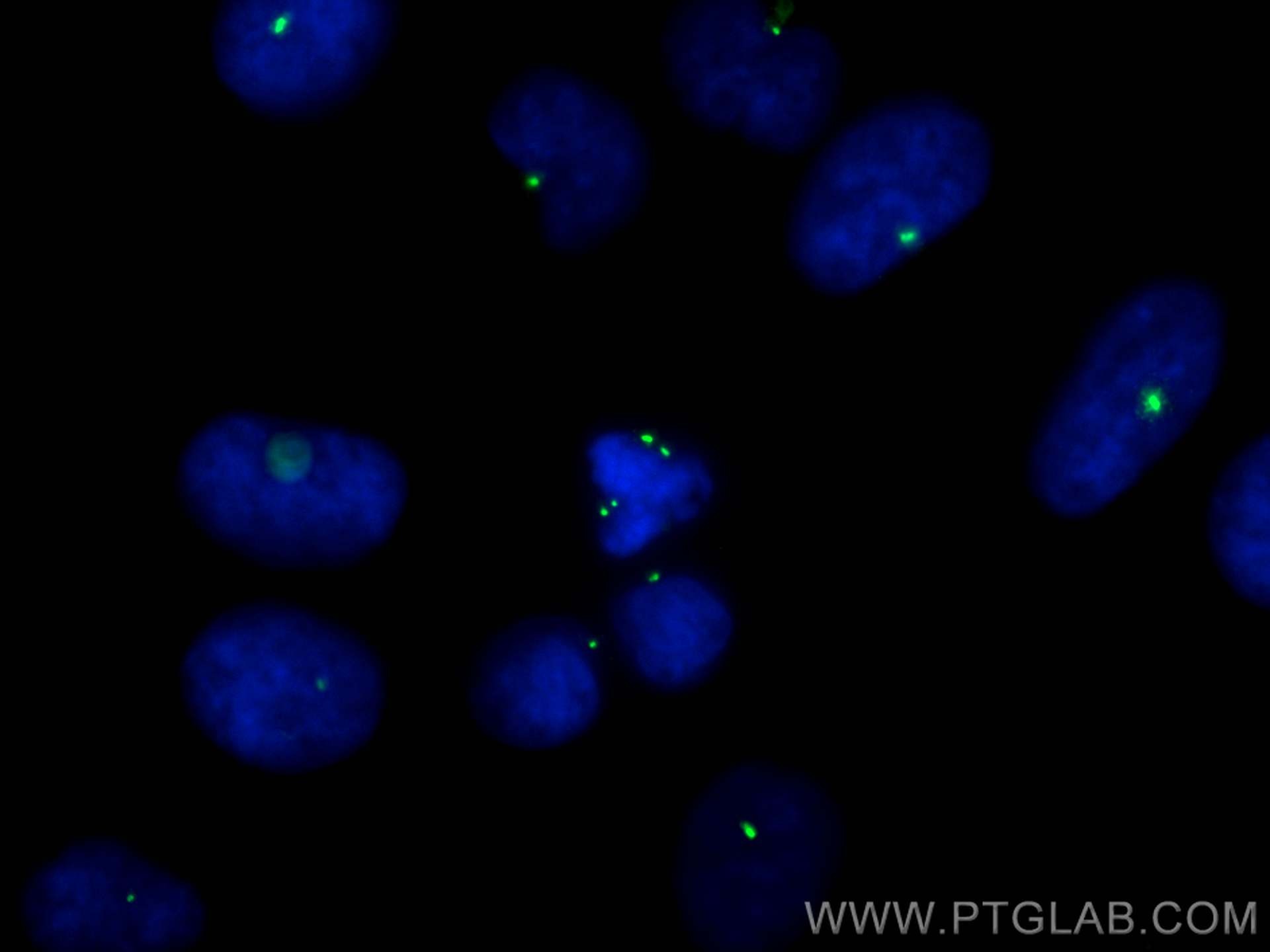Validation Data Gallery
Tested Applications
| Positive IF/ICC detected in | HeLa cells |
Recommended dilution
| Application | Dilution |
|---|---|
| Immunofluorescence (IF)/ICC | IF/ICC : 1:50-1:500 |
| It is recommended that this reagent should be titrated in each testing system to obtain optimal results. | |
| Sample-dependent, Check data in validation data gallery. | |
Product Information
CL488-27084 targets Pericentrin in IF/ICC applications and shows reactivity with human samples.
| Tested Reactivity | human |
| Host / Isotype | Rabbit / IgG |
| Class | Polyclonal |
| Type | Antibody |
| Immunogen | Pericentrin fusion protein Ag25888 相同性解析による交差性が予測される生物種 |
| Full Name | pericentrin |
| Calculated molecular weight | 378 kDa |
| GenBank accession number | AK093923 |
| Gene Symbol | Pericentrin |
| Gene ID (NCBI) | 5116 |
| RRID | AB_3084106 |
| Conjugate | CoraLite® Plus 488 Fluorescent Dye |
| Excitation/Emission maxima wavelengths | 493 nm / 522 nm |
| Form | Liquid |
| Purification Method | Antigen affinity purification |
| Storage Buffer | PBS with 50% glycerol, 0.05% Proclin300, 0.5% BSA , pH 7.3 |
| Storage Conditions | Store at -20°C. Avoid exposure to light. Stable for one year after shipment. Aliquoting is unnecessary for -20oC storage. |
Background Information
PCNT, also named as KIAA0402, PCNT2, Pericentrin-B and Kendrin, is an integral component of the filamentous matrix of the centrosome involved in the initial establishment of organized microtubule arrays in both mitosis and meiosis. PCNT plays a role, together with DISC1, in the microtubule network formation. PCNT is a marker of centrosome. Defects in PCNT are the cause of microcephalic osteodysplastic primordial dwarfism type 2 (MOPD2).
Protocols
| Product Specific Protocols | |
|---|---|
| IF protocol for CL Plus 488 Pericentrin antibody CL488-27084 | Download protocol |
| Standard Protocols | |
|---|---|
| Click here to view our Standard Protocols |
